Friendly Societies Home | Regalia | Benefits
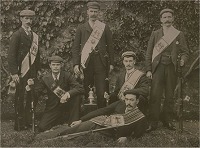
The social side of friendly societies
Friendly societies were keen to emphasise their fraternal and brotherly aspects. These were the bonds that kept a society healthy. They naturally translated into an active social programme. This was true of affiliated or unity societies but even smaller societies benefited from a social 'feel-good' effect. High profile societies appeared attractive to new members. Existing members stayed active if they found the activities to their liking.
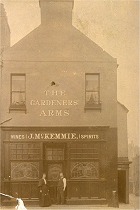
In many places, the only available meeting room was in a public house. This explains all the pubs with Gardeners, Foresters and Mechanics in their names in Edinburgh and the Lothians. So it was natural to socialise after business was over. The morality of this worried some people and many ministers did not approve of friendly societies for this reason. Sometimes, it seems critics did not separate the benefits of societies from the drink and debauchery of a public house. However, the warnings had some reason as landlords often started societies in their pubs. If they did they often took a leading place to make sure their own business prospered.
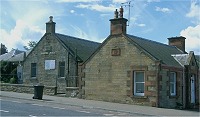
Because of this problem, the friendly society and temperance movements combined in organisations like the Rechabites and Good Templars. These bodies met in 'dry' rooms or church halls. However, even these societies had their special entertainment and education programmes.
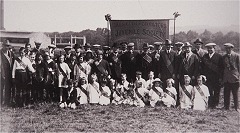
At the simplest, a society's social activity might be a dinner and singsong after a regular business meeting. Often, a special feast followed an annual general meeting or election. At such a time it was natural to process in ceremony and wearing regalia from business meeting to dinner. Tradition could be inherited from deep in the past; some societies founded in the late 18th or early 19th centuries seem to have kept alive local fairs and holidays. Haddington's Carters Fair might be such an example; the carters passed the duty to the burgh traders' organisation in the early 20th century. Other groups, like the United Friendly Societies of Penicuik, started local Gala Days.
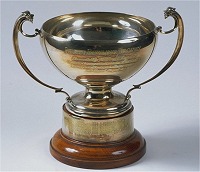
Gardeners too had their regular flower shows until horticultural society shows became more popular in the 19th century. Many societies held dances, sales and organised other entertainment to raise funds. Some, like the mechanics and gardeners, offered programmes of instruction or opened libraries. Others provided reading rooms or billiards. In the second half of the 19th century many lodges had teams in local sporting leagues. Shooting and local sports days were popular for a while, then activities like football or other team games. Some affiliated societies organised their own leagues and had trophies to match. Some of the larger branches ran competitive events from within their own ranks.
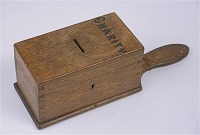
The idea of mutual aid was extended into charitable works for third parties. Forester lodges gave donations to the Royal National Lifeboat Institution. The cash paid for several 'Forester' lifeboats. Individual lodges might also support local charities or contribute to District or Grand Lodge benevolent funds.
Friendly Societies Home | Regalia | Benefits